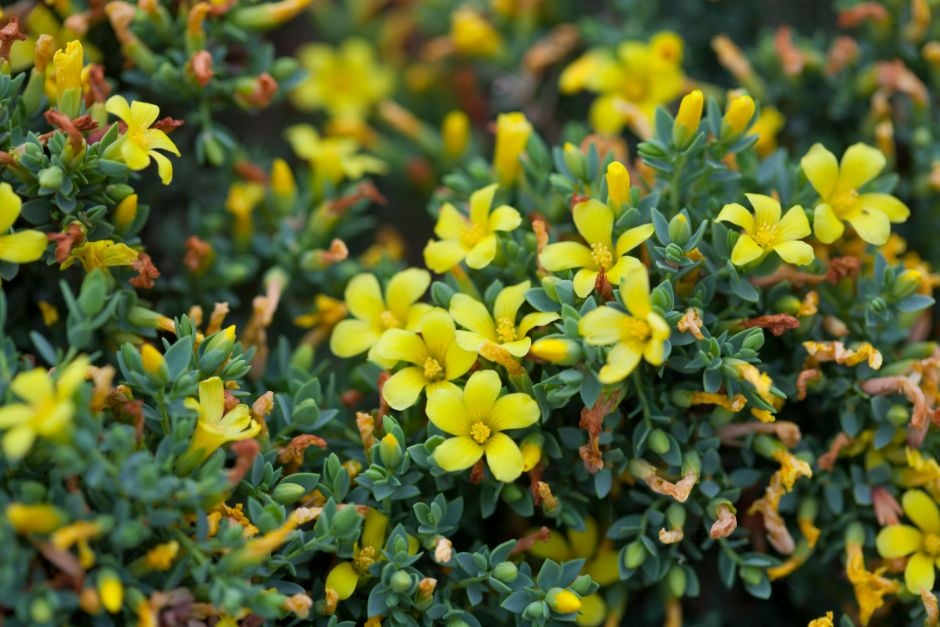Hypericum aegypticum
Egyptian St John's wort
A dwarf, evergreen, branching and spreading shrub to 30cm tall with ovate, grey-green leaves 30-80mm long. Solitary, golden-yellow flowersup to 1cm in diameterare borne at the end of short stems in summer

Buy this plant
Size
Ultimate height
0.1–0.5 metresTime to ultimate height
5–10 yearsUltimate spread
0.1–0.5 metresGrowing conditions
Moisture
Moist but well–drained, Well–drainedpH
Acid, Alkaline, NeutralColour & scent
| Stem | Flower | Foliage | Fruit | |
| Spring | Green Grey Silver | |||
|---|---|---|---|---|
| Summer | Yellow | Green Grey Silver | ||
| Autumn | Green Grey Silver | |||
| Winter | Green Grey Silver |
Position
- Full sun
- Partial shade
Aspect
North–facing or East–facing or South–facing or West–facing
Exposure
Exposed or Sheltered Hardiness
H3Botanical details
- Family
- Hypericaceae
- Native to GB / Ireland
- No
- Foliage
- Evergreen
- Habit
- Bushy
- Potentially harmful
- Fruit are ornamental - not to be eaten. Wear gloves and other protective equipment when handling. Pets: Fruit are ornamental - not to be eaten - see the HTA guide to potentially harmful plants for further information and useful contact numbers
- Genus
Hypericum can be annuals, perennials, shrubs or trees, evergreen or deciduous, with usually paired leaves and showy yellow flowers with prominent stamens, followed by capsules, occasionally berry-like
- Name status
Correct
- Plant range
- Mediterranean
How to grow
Cultivation
Grows well in moist but well-drained soil in sun or partial shade
Propagation
Propagate by seed in autumn or by softwood cuttings in summer
Suggested planting locations and garden types
- City and courtyard gardens
- Coastal
- Cottage and informal garden
- Gravel garden
- Patio and container plants
- Rock garden
- Low Maintenance
- Flower borders and beds
Pruning
Pests
Generally pest-free
Diseases
May be susceptible to a rust and honey fungus (rarely)
Get involved
The Royal Horticultural Society is the UK’s leading gardening charity. We aim to enrich everyone’s life through plants, and make the UK a greener and more beautiful place.